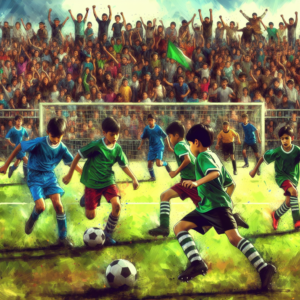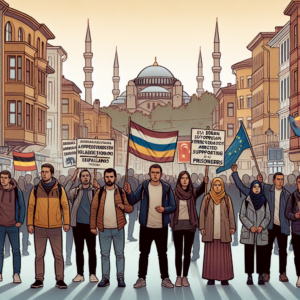Toledo, March 9, 2023- Castilla-La Mancha takes an important step today in defense of children, adolescents, and families of the region through the debate on the Law of Care and Protection of Children and Adolescents that is taking place in the regional Parliament where, this afternoon, deputies will vote on its approval, which is expected to be unanimous among the political groups.
This was expressed this morning by the Minister of Social Welfare, Bárbara García Torijano, who began her speech in the regional Chamber with a greeting to the Third Sector entities in the field of Childhood and Family who have come to witness the debate on this Law, which «is born of shared experience and consensus».
The minister thanked all those who contributed to the approval of the Law of Childcare and had a special thanks for the professionals who work with Children «because it is a difficult area to manage; not so much with families, but internally». It is an area where «the soul and heart are touched a lot,» she said, «and working with families and minors is a very exclusive, dedicated and ungrateful job».
«Today is a day to celebrate rights and to protect Childhood and Adolescence. Also, the accompaniment of families,» said the Minister of Social Welfare. «This law protects the greatest treasure a society has, which is childhood,» and she added that, with this Law, the participation of the protagonists themselves is favored within a system that gives a voice to Childhood and Adolescence».
Content of the Law of Care and Protection of Children and Adolescents
Just one month after the approval of the Early Care Law, the minister defended this new Law, whose drafting process was «extremely complex» as it had to overcome up to 35 procedures before obtaining the unanimous opinion in the Committee on Welfare Social on February 22.
The Law’s text is «complex, wide-ranging, and ambitious,» both in its content and its elaboration. It consists of 145 articles, a preliminary title, and ten titles, plus a series of additional, transitional, and final provisions.
The Minister of Social Welfare pointed out that, with this Law, «we fulfill a commitment of the government of President Emiliano García-Page, mainly with Childhood and Adolescence and is the result of consensus, of the pact with society through the social entities representative of this area, and with the parliamentary groups.»
As García Torijano pointed out, it is a modern Law that responds to the reality of Childhood today, in 2023, and makes its approach evolve from protection to prevention. It also combats child violence and supports and accompanies families in child-rearing through criteria of positive parenting.
Main News
García Torijano explained that it is a Law that «adapts to and incorporates novelties into the state legislative framework,» such as the Law of Protection of Children against Violence and is «enriching» because it has four pillars: caring, preventing, protecting, and intervening. «Four pillars that are protected with this Law, because we believe that it is fundamental for children and also for their families since we understand that work has to be done in the family unit,» she stated.
As one of the most novel aspects of the Law, the minister emphasized that «it recognizes the condition of victim of gender violence to children and adolescents who are in these situations and accompanies them for their development in a society free of violence against Childhood».
It also «focuses on prevention and on new realities related to access and use of the internet and social networks, especially in the adolescent stage, such as bullying and cyberbullying or addictions with and without substance». It also incorporates the rights and duties of foster families and regulates specialized care centers for minors, as a last resort when the attention in ordinary resources has been insufficient, among other principles that the minister listed.
The Minister of Social Welfare emphasized that the Law «accompanies and supports families,» stressing the importance given to foster families.
It also commits to the preparation of independent living. «We consider it crucial to mark a future for Children and Adolescents in Castilla-La Mancha, especially for those who do not have so much support in their family environment and, therefore, have the support of the Administration, entities, and professionals to be able to mark that path towards independent living».
In this regard, no less important is the commitment that this Law contemplates to strengthen work with families with the aim of promoting that Children and Adolescents who are under the tutelage of the regional administration return to their family of origin whenever possible and in the best interest of the child.
It reinforces and establishes intervention programs, such as the Referral Program, which allows offering support to Children and Adolescents, and their families in situations of risk, or in residential or family placement, or after tutelage or compliance with a judicial measure.
The text also adopts a gender perspective, where equality is the predominant note to prevent, identify, and eliminate gender violence and situations of discrimination based on sex. A question that is also taken into account in homes and residential centers, especially in respect of the equal treatment and non-discrimination of LGBTI people housed in them.
Commitment to the Protection and Promotion of Childhood
The Minister of Social Welfare closed the debate on the Law, stating that in these eight years of President Emiliano García-Page’s Government, «we have increased the budget dedicated to the area of Childhood by €26.4 million in our commitment to protect Children, Adolescents, and families».
García Torijano stated that «as a citizen, I am very proud of what this government has done in these years, which have been difficult, but at no time has the word that does so much harm to the Autonomous Community, which is cuts, crossed our minds.»
She also recalled that this Childhood Law is the third law that has been approved since the Ministry of Social Welfare in this legislature, together with the Third Sector and the recently approved Early Care laws, «driven and worked by the Government of Emiliano García-Page, in constant dialogue with social entities».
Finally, she called for «joint work» to tackle the much still to be done with projects as important as the drafting of the 2023-2026 Childhood Plan or the Social Concert.
In short, she concluded, «what we bring to the Chamber today is a Law that reflects the effort we put in from the regional Administration to protect the general interest of the child, to defend Childhood and, with it, the future of Castilla-La Mancha».
















